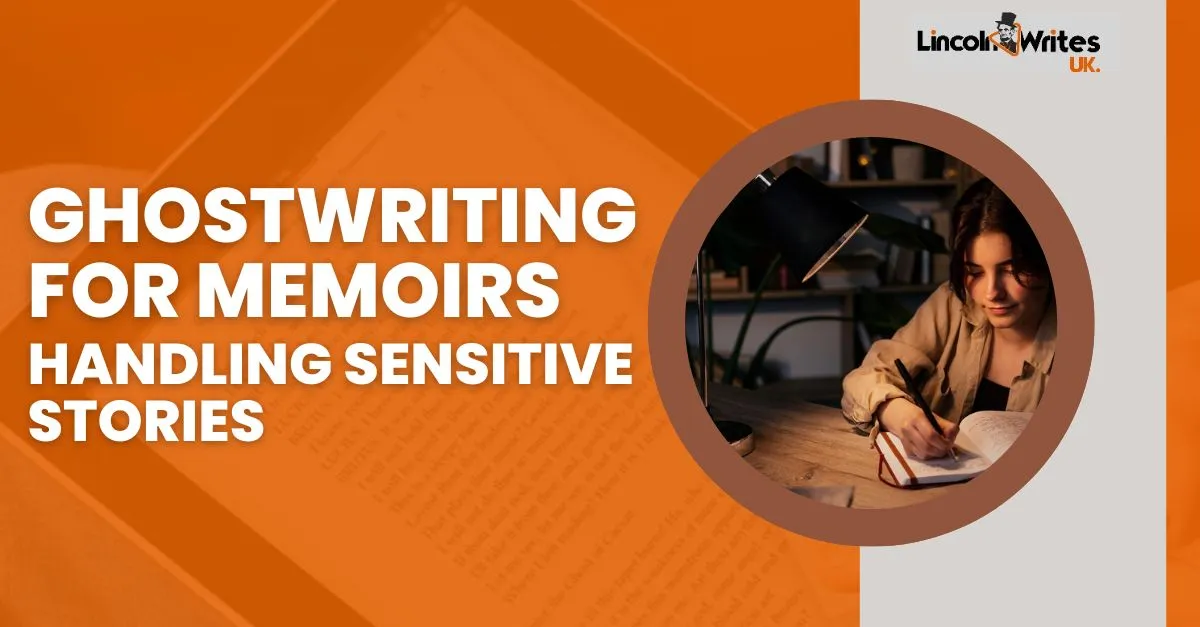Memoirs are more than just stories. They’re truth, vulnerability, and legacy wrapped into one manuscript. Whether it’s a tale of triumph, trauma, or transformation, writing a memoir means opening up parts of your life that most people never share aloud, let alone put on paper.
That’s why memoir ghostwriting isn’t just about good writing. It’s about trust, empathy, and handling sensitive material with absolute care.
If you’re thinking about working with a ghostwriter on your memoir, you’re not alone. Many authors turn to professionals not only to help shape their story, but to ensure that it’s told respectfully, truthfully, and powerfully.
In this guide, we’ll explore how ghostwriters approach deeply personal content, what confidentiality and legal safeguards should be in place, and why this process can be transformative for both the writer and the storyteller.
Why Hire a Ghostwriter for Your Memoir?
Memoirs often start with one thought: “Someone needs to hear this story.”
But turning life experience into a compelling narrative takes more than a good memory. It takes structure, pacing, emotional intelligence, and distance.
That’s where ghostwriting services come in.
A memoir ghostwriter helps you:
- Structure your life story into a readable, engaging arc
- Handle difficult or triggering material with compassion
- Preserve your voice and perspective while enhancing clarity
- Work through ghostwriter tight deadlines without burnout
- Stay emotionally supported throughout the process
From military veterans to cancer survivors to entrepreneurs documenting a rise-from-the-ashes journey, everyone deserves to have their story told right.
Building Trust in Memoir Ghostwriting
One of the most critical steps in memoir ghostwriting is trust. You’re handing over your life story, or at least the most significant chapters, to someone else. That’s a vulnerable position to be in.
A good ghostwriter:
- Listens more than they talk
- Asks permission before diving into sensitive areas
- Checks in regularly about tone, accuracy, and emotional comfort
- Ensures their presence fades into the background so your voice shines through
Establishing clear boundaries from day one sets the tone for a healthy working relationship.
The Importance of Confidentiality
Memoirs often involve stories about other people, family, friends, ex-partners, bosses, abusers, and mentors. Not everyone wants (or deserves) to be named.
Professional ghostwriters are well-versed in ghostwriting legal aspects such as:
- Confidentiality Agreements (NDAs): These protect your private information and unpublished content
- Anonymisation Practices: Changing names or identifying details to protect subjects
- Informed Consent: If a person is portrayed in a way that may affect their reputation, consent may be needed
- Copyright and Moral Rights: Your story, your ownership, your credit
These safeguards ensure you can share freely without risking legal trouble or emotional distress.
Handling Trauma and Emotion in Writing
Ghostwriters working on memoirs often deal with heavy subject matter, grief, illness, addiction, abuse, mental health, war, identity, and more.
Here’s how experienced writers approach sensitive material:
- With emotional awareness: They’re not therapists, but they know how to hold space
- With pacing: Difficult content is balanced with moments of lightness and perspective
- With sensitivity: Language matters. Tone matters. Consent matters.
It’s not uncommon for memoir clients to cry during interviews, need breaks, or even question whether they want to continue. That’s normal and respected.
Speed vs. Sensitivity: Is There a Balance?
Absolutely. Some clients need their memoir done fast, before a life event, launch, or simply because they’re emotionally ready to release it.
Working under a ghostwriter’s tight deadlines is possible, but it requires:
- Clear planning
- Shorter, more focused interviews
- Prioritising core themes over every life detail
- Strong communication and scheduled feedback loops
When speed is balanced with care, the result can still be a beautiful, honest memoir, delivered in time.
Proofing and Privacy
Once your memoir is written, it goes through layers of revision, and that’s where things can get tricky.
You may need to:
- Remove or reword content to protect others
- Clarify or fact-check memories
- Decide what’s too personal to publish
At this stage, tools like proofreading checklists and proofreading tools 2025 come into play, ensuring the manuscript is not only grammatically correct but emotionally consistent.
If you’re planning to self-publish, it’s essential to think about proofreading. It’s your last chance to make edits before the book goes public.
Memoir Publishing: What Comes Next?
After your manuscript is finalised, you’ll need to consider:
- Whether to pursue traditional vs ebook publishing
- Which platform to use if you choose the ebook publisher routes
- How to prepare for metadata, launch timelines, and distribution through ebook distribution channels in the UK
- If you want help with ebook publisher marketing support to build momentum
Publishing a memoir is a personal journey, but it’s also a strategic one. Understanding how your story fits into ebook publishing trends 2026 UK (like short-form memoirs, serialised content, or audio-first launches) can help you make the most of your book’s impact.
A Quick Note on Ghostwriter ROI
You may be wondering: Is writing a memoir with a ghostwriter really worth it?
Well, here’s the thing about ghostwriter ROI. It’s not just financial.
Sure, you can earn royalties if your story resonates with readers. But for many, the real return is emotional:
- Healing from the past
- Leaving a legacy
- Inspiring others
- Preserving your truth on your terms
That kind of return is priceless.
When to Hire a Proofreader
Before you hit publish, especially if you’re self-releasing, it’s vital to know when to hire a proofreader.
Generally, this comes:
- After the ghostwriter delivers the final draft
- Before typesetting or ebook formatting
- Once you’ve had time to read with fresh eyes
A professional proofreader ensures your voice remains intact while polishing technical details, commas, clarity, proofreading symbols, and consistency across pages.
Final Note
Memoirs are delicate. They’re raw, personal, and powerful. And when handled with care, they can change lives, yours and your readers’.
Choosing memoir ghostwriting doesn’t mean handing off your story. It means teaming up with someone who can hold your truth, respect your journey, and craft something that truly reflects who you are.
At Lincoln Writes UK, our ghostwriting services have helped authors from all walks of life turn their memories into manuscripts. Whether you’re writing to heal, to inspire, or to preserve your legacy, we’re here to help you tell your story, your way.
Ready to bring your life story to the page with the care it deserves? Let’s talk memoirs.


